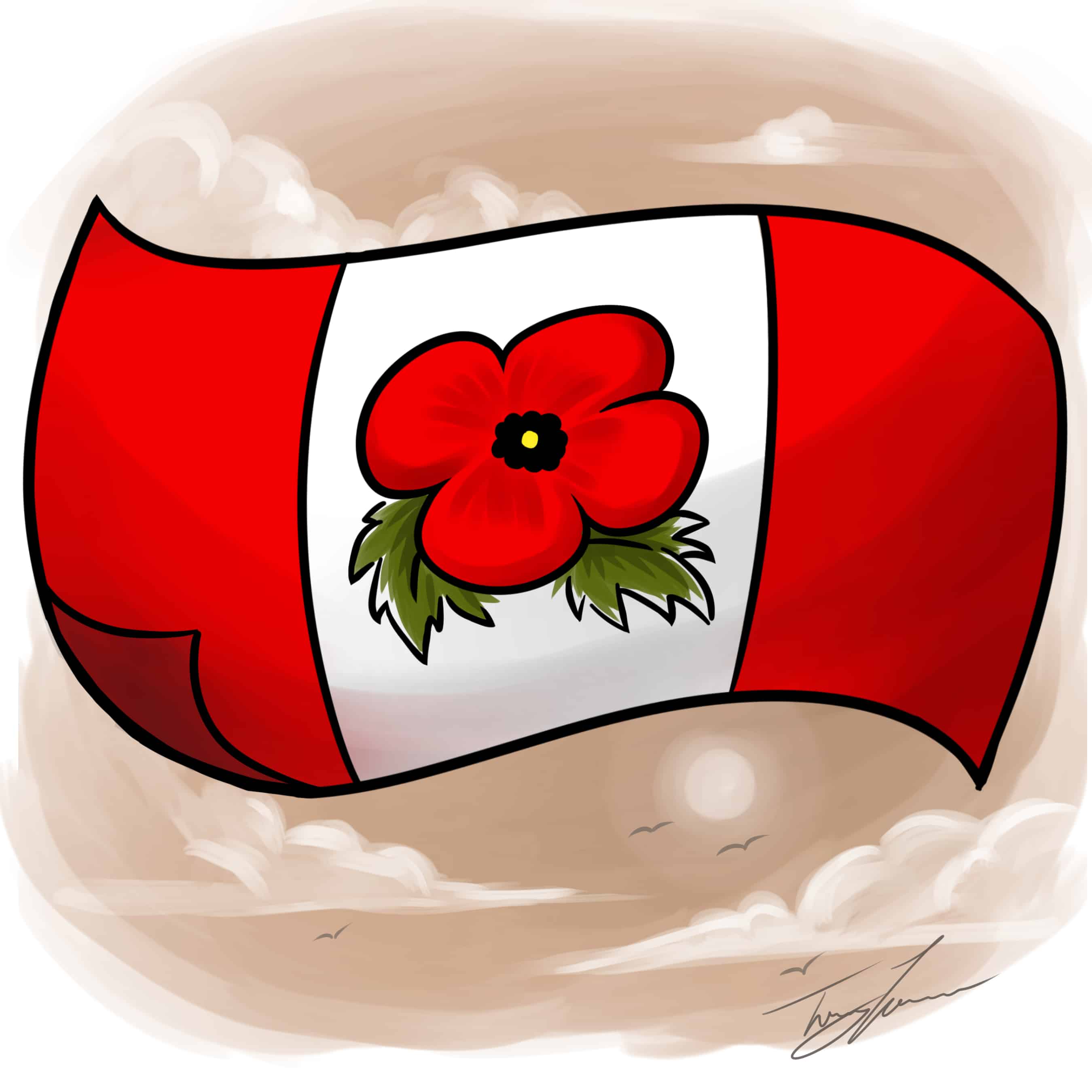On November 11, Canadians collectively paused to pay tribute to citizens who have defended this country. However, Remembrance Day is a statutory holiday for only some parts of Canada, as not all provinces recognize the day as a ‘day off.’ Manitoba, Ontario, Quebec, and Nova Scotia all have policies surrounding the observance of Remembrance Day, but they have not recognized it as a full statutory holiday.
This is not good enough — it is time for Canada to act as a unified nation, make Remembrance Day a legal statutory holiday across all provinces, and equate it in status to holidays like Canada Day.
This idea is not new. In 2014, New Democratic Party member Dan Harris introduced Bill C-597, which was designed to specifically amend the Holidays Act and make Remembrance Day a legal national holiday. At a second reading of the bill in 2015, it was all but supported unanimously by the usually divided House of Commons. Unfortunately, a triggered election dissolved this bill in August 2015.
However, a similar amendment to the Holidays Act has been brought forward by Liberal Member of Parliament Colin Fraser, with its first reading having occurred in late September. While Bill C-311 does not make Remembrance Day a full statutory holiday, it places it on the same importance as Canada Day. This bill may also make provinces revisit the notion of making Remembrance Day a statutory holiday. Passing this bill would be productive for national unity and for honouring our veterans.
The significance of Remembrance Day is marked by what happened on November 11, 1918. This day denoted the end of hostilities in World War I (WWI). Over 650,000 soldiers from Canada and Newfoundland served, with 68,000 lives lost. It was a tumultuous period for our country and for the world at large.
Canada’s display in WWI marked a significant turning point for Canada as a nation. At the beginning of the war, Canada was just another contingent of the British Empire, led by British generals. The sheer number of Canadians who served as well as the courageous actions of Canadian servicemen and women during battles such as Vimy Ridge were recognized by the international community during WWI. As a result, Canada was given its own independent signing on the Treaty of Versailles, signifying the end of the war and the beginning of greater Canadian independence from Britain.
This significant moment in Canadian history warrants the designation of a full day of national respect, regardless of differences in provincial legislation. At the same time, the significance of Remembrance Day traverses the historical context of WWI. By recognizing Canadian veterans, it symbolically marks the significance of all subsequent wars, including the great sacrifices in World War II, the Korean War, the South African War, and the War in Afghanistan.
I believe this country respects those who have fallen. We have reputable institutions across this country, such as the Canadian War Museum in Ottawa, that pay homage to the soldiers who served. There are memorial services held across the country on November 11, which are largely attended by current Canadian Forces members, civic officials, and veterans. The playing of “Last Post” touches Canadians everywhere that it is heard. The poem “In Flanders Fields” personifies the unknown soldier who sacrificed their own life for the wellbeing of the nation.
These feelings are indiscriminate of provincial Remembrance Day policies. When our soldiers, sailors, and airmen assaulted Juno Beach in Normandy, they did so on behalf of Canada not their specific province.
Making Remembrance Day a holiday should not be a provincial issue. Provinces do not afford the day consistent recognition and respect. For instance, Nova Scotia specifies that most grocery stores and retail locations must be closed on November 11, but it remains another regular business day for farming and the foresting industry.
Whatever the details of respective provincial policies, Canada must become unified as a country for this day. A more unified federal approach to a statutory Remembrance Day removes the ambiguity of the respect of individual provinces towards the Canadians that have served and fallen for our country.
[pullquote-features]It is sobering to think that it was people of our age who gave up the opportunities of youth, the safety of home, the comfort of friends, and the promise of tomorrow to become soldiers, sailors, and airmen.[/pullquote-features]
Making Remembrance Day a statutory holiday is not just an excuse for another day off. While there is the economic argument that there is reduced productivity for a full day off, we should not put a price on national pride and gratitude.
It is sobering to think that it was people of our age who gave up the opportunities of youth, the safety of home, the comfort of friends, and the promise of tomorrow to become soldiers, sailors, and airmen. They were paid little. They followed orders, which sometimes led to their deaths, all for the idea of a country and a world that should not be ruled by fear and tyrants.
Consequently, there is more we can do to give thanks. Winston Churchill famously said, “Never in the field of human conflict was so much owed by so many to so few.” These wars helped shape the freedom we enjoy today in Canada — the freedom I am given to even craft this editorial.
All that we cherish in Canada today is the result of those who volunteered to defend our values. A brief pause in the business and activity of this country in order to pay a small debt of thanks is not too much to ask.
Ian T. D. Thomson is a Master of Public Policy candidate at the School of Public Policy and Governance. He holds an Honours Bachelor of Science in Psychology and a Bachelor of Arts in Philosophy from the University of Manitoba.


